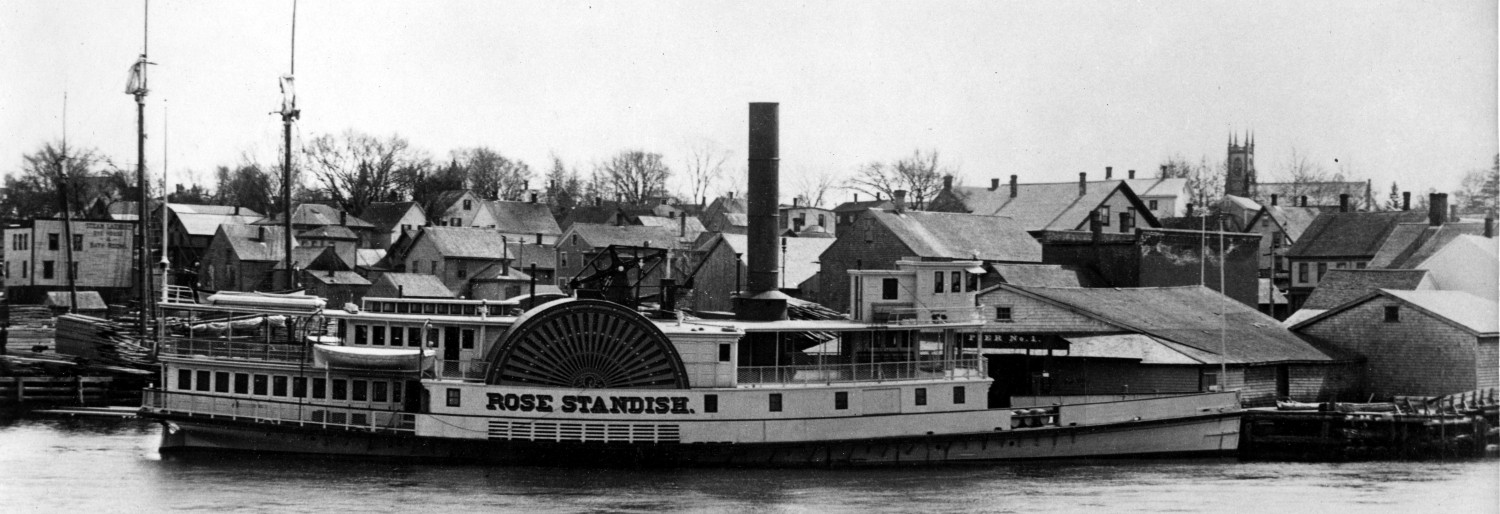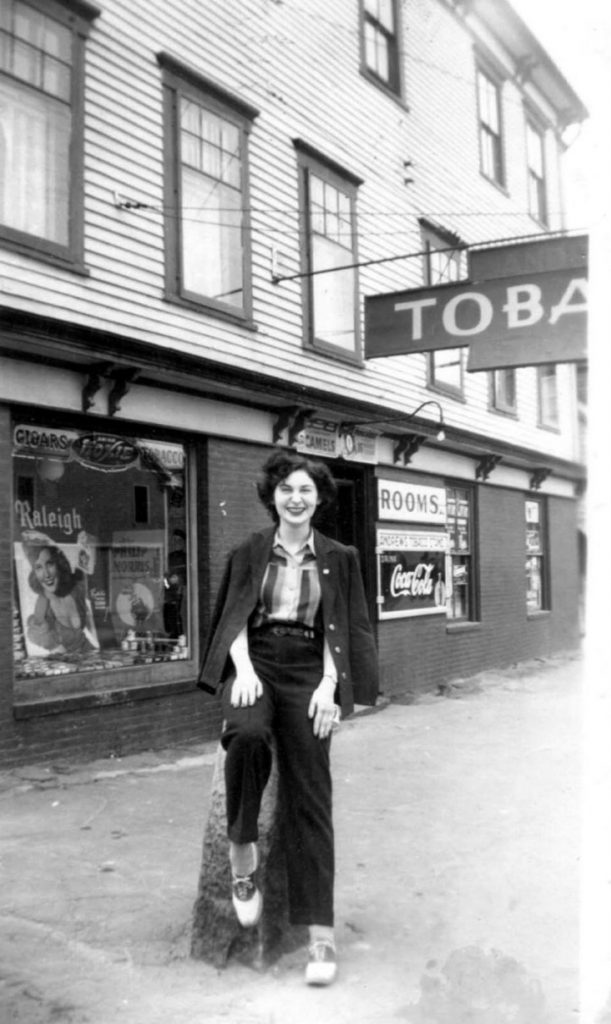
We found this image in some photos left the society by Gracie Meader. We don’t know the young lady, but we know the date: early 1942 just after the U.S. became involved in World War 2. Many will recognize the background as the corner of Main and Whitney Streets and the entrance to the Andrews Tobacco Store. In 1942 Andrews Tobacco was selling Moxie and Coca Cola and renting rooms, but its main line was tobacco products, Philip Morris, Camel and Raleigh cigarettes and cigars. For many years Andrews Tobacco Store sold more cigarettes and other tobacco products than other store in Maine and by a wide margin.
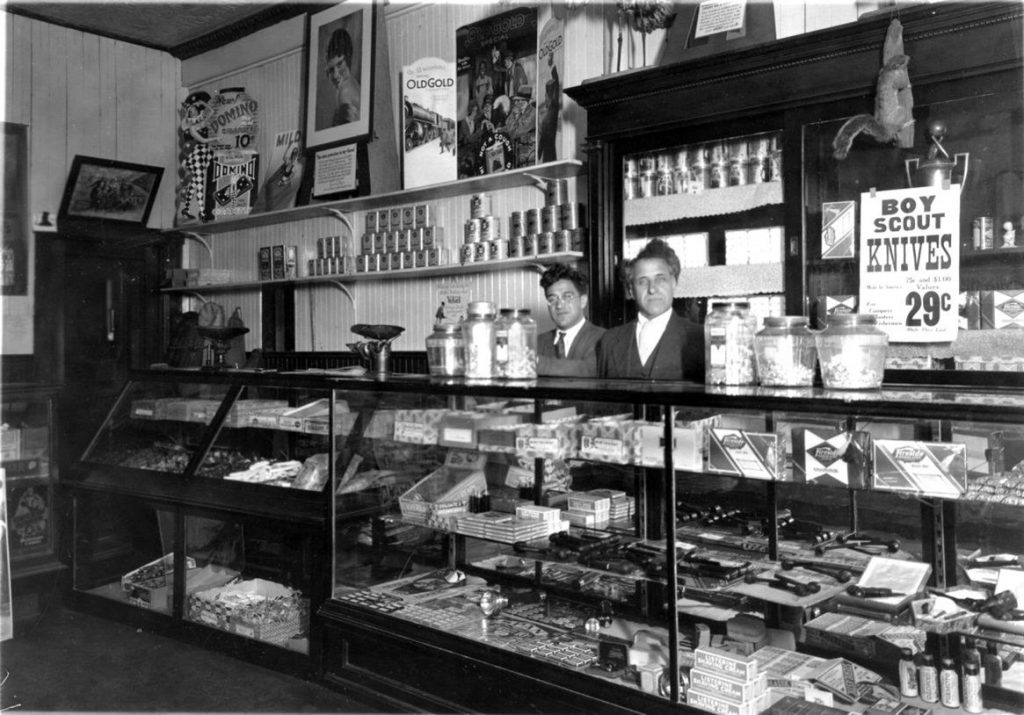
And why not? In those days cigarettes were not harmful. In fact, they were even thought to be good for you. Above is Foggia’s store in Woodland, probably in the late ‘20s or early ‘30s. The tobacco ads are to the upper left.
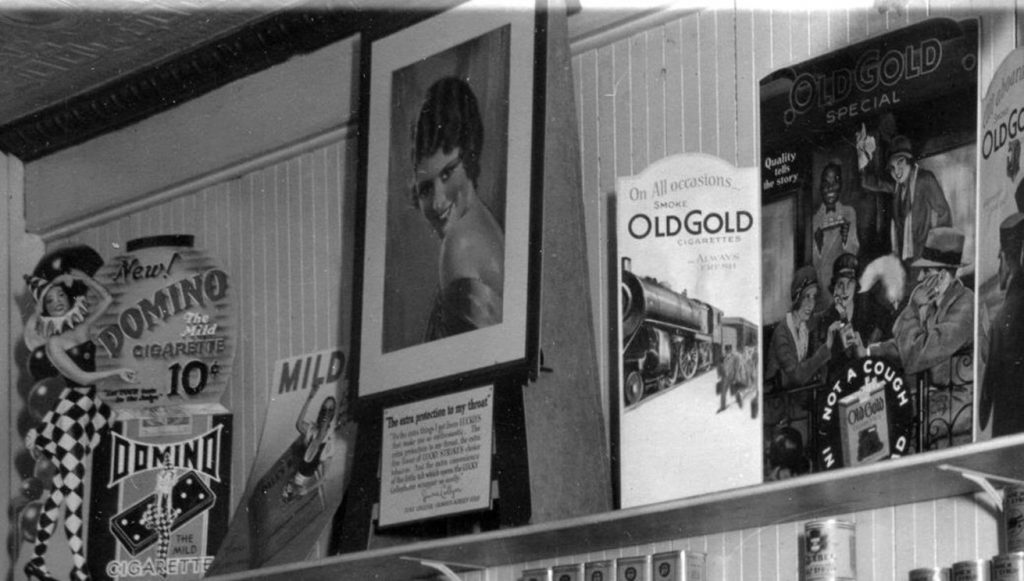
Luckies were designed to provide “Extra Protection to Your Throat”; and Old Gold guaranteed there was “Not a Cough in a Carload.” Camels’ ads of this era claimed “More Doctors Smoke Camels than Any Other Brand.” Ads targeting women declared smoking would keep a lady thin and sexy- “‘you will avoid over-indulgence in the things that cause excess weight and maintain a modern graceful form’.”

Cigarettes made the perfect gift in 1950, and, while no one but the tobacco companies realized it at the time, it saved on the expense of future gifts for the lucky recipient. Chesterfields it turned out were especially lethal.

Of course if you had asthma, a few packs a day was highly recommended; and as they also sweetened your breath and cured the common cold, how could a smoker go wrong?
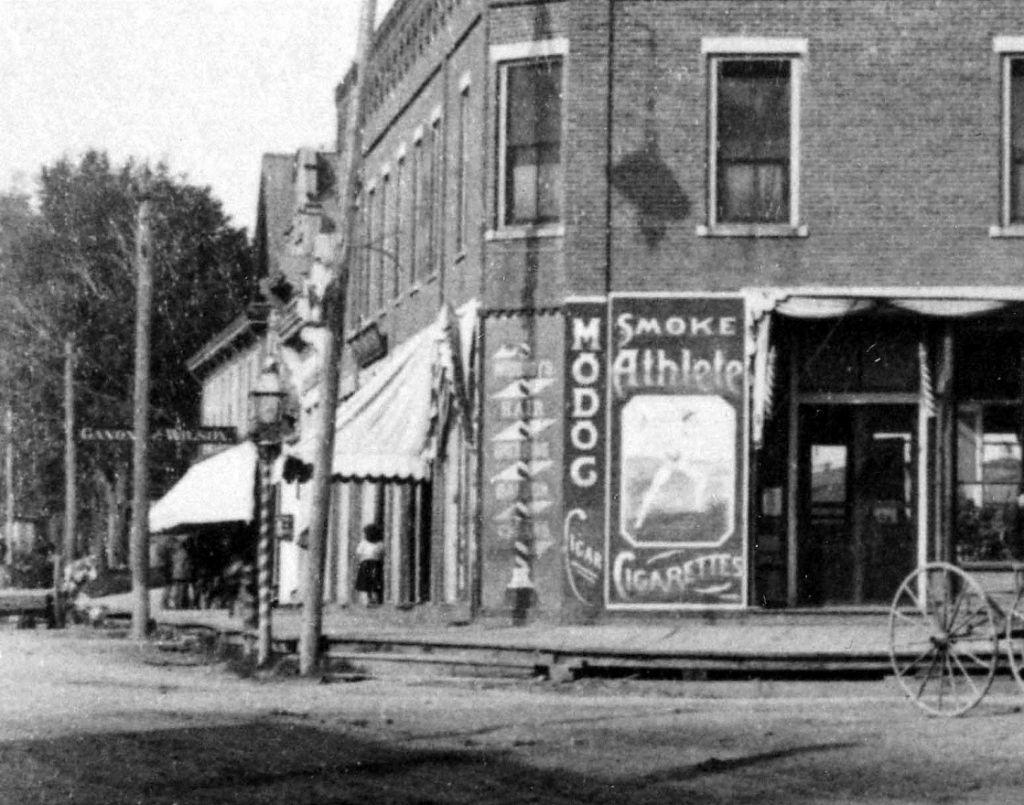
Athletes had their own special brand of cigarettes; this ad was on the corner of King Street and Water Street in St Stephen. We’re not sure if athletes had their own cigar brand but, if they did, they could have had their cigars tailor-made in St Stephen.

Just across King Street from the ad above was the Bell Cigar Factory, near where McVay’s barbershop is today. Bell’s has a checkered history and the company was suspected of smuggling raw and finished products to and from the U.S. without paying duty. Where the law got such a preposterous idea we can’t say but we find an early newspaper article reporting a group of Canadian revenue officers sneaking into Calais and taking rooms at the Border City Hotel. They crossed daily into St Stephen to obtain evidence of customs violations by local merchants. Officer Kelly of St John was assigned to stake out the Bell Cigar Factory which he did by sitting in the window of S. McCurdy’s barbershop across the street. However, when McCurdy discovered his purpose Kelly was chased out of the barbershop, and soon the entire lot had been identified by locals and left town with little to show for the undercover operation.

We hope the lady in the first photo had the foresight to stock up on Camels at Andrews while she had the chance. The war was hard even on vices as can be seen in this 1944 Calais Advertiser article. By the end of the war nearly everything including booze and cigarettes were rationed. Only eggs and dairy products escaped rationing.
